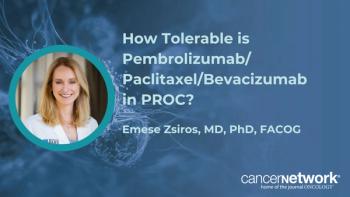
Don’t Legislate Me
I do not want politicians passing laws to tell us how to practice. The legislative process cannot keep pace with changes in medicine.
Massachusetts recently passed a rule requiring doctors to discuss end-of-life (EOL) decisions with their terminally ill patients. While I am a passionate advocate for patient-focused EOL care, I am not excited by the idea of politicians interfering with the doctor–patient relationship. Nor do I see any benefit in having laws to define best practice.
First of all, they define “terminally ill” as patients with less than 6 months to live. We all know that doctors are typically too optimistic about expected time to demise. So, most of the time, doctors never get around to having “the talk” because they think it is too early. The original idea, which was buried after Sarah Palin and her death panels went viral, was to have this whole discussion with Medicare patients as part of their routine evaluation. We all know it is much easier, less emotional, and far more rational to discuss your EOL wishes before you are in the throes of a terminal illness.
Second, there is no documentation required. If this discussion resulted in Physician Orders for Life-Sustaining Treatment (POLST) or Medical Orders for Life-Sustaining Treatment (MOLST), or even a living will and durable power of attorney, it would produce something tangible, portable, and legally binding. What role does the family play in this? Will the estranged son or the daughter living off Mom’s Social Security check be accountable to these decisions? Making a note in the office EMR is likely to be lost or unprocurable at a critical time.
Third, it has no teeth. The physician or nurse can skip the whole thing if the patient says they are “not interested” or it conflicts with their religious beliefs. Could someone please tell me who is not interested in how they are going to die and what religion forbids any discussion of that?
Fourth, there is no mention of payment for this work. I think any of you would agree with me that these discussions are serious, exhausting, time-consuming work. Ordering chemotherapy is far easier, and we are well paid to do that. For the primary care physician who is forced to see insane numbers of patients in a day, it takes at least two or three time slots to have this face-to-face encounter, but what is the reimbursement going to be?
Fifth and most importantly, I do not want politicians passing laws to tell us how to practice. The legislative process cannot keep pace with changes in medicine. This bill first was proposed in 2012 and it was enacted in 2015. And the core idea of discussing EOL has been considered a standard of care for decades. Not a very time-efficient process for anything, particularly healthcare. I prefer to continue to work on educating physicians and the public rather than have a law written. Honestly, there is a law requiring radiology departments to notify women in writing when it is noted that the patient has “dense breast tissue.” Will there be a law to notify patients if they have a body mass index over 30? What if your state government decides to spell out exactly how you should use antihypertensives or what molecular profiling to get on malignant tissue? Passing a bill does not fix the medical issue, it just makes us legally responsible to document it-and then what? The political process cannot keep up with new knowledge, treatments, drugs, or procedures. EOL may seem like a feel-good issue, but I see it as an important event that should alert us to increasing influence from the political stage into our practice. Meanwhile, we have a bridge in my city that is crumbling and could send people to a watery grave any day now. They cannot decide how to pay to rebuild it, so it continues to deteriorate along with hundreds of other bridges and roads across the country.
Physicians need to hold themselves to the highest standards with full consideration of what is best for individual patients, as well as the community as a whole. I will gladly hold myself accountable to peers, patients, and well-supported practice standards, but politicians-no thank you.
Newsletter
Stay up to date on recent advances in the multidisciplinary approach to cancer.










































